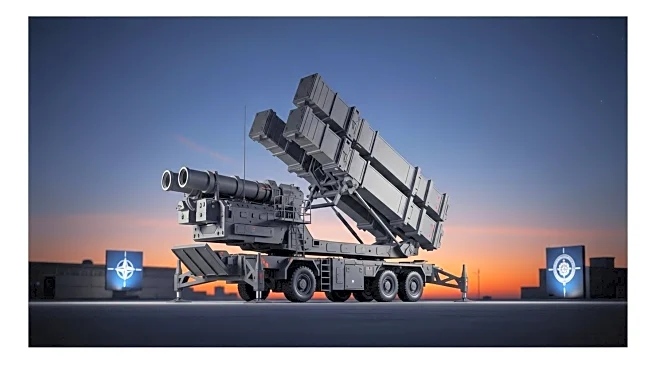What's Happening?
Russia has launched over 500 drones and missiles into Ukraine, targeting multiple regions including Kyiv and western areas such as Lviv, Ivano-Frankivsk, Khmelnytskyi, and Lutsk. Ukraine's air force reported that 430 drones and 21 missiles were downed or suppressed, while impacts were recorded in 14 locations. The attacks resulted in one fatality in Khmelnytskyi and damage to civilian infrastructure in Lviv and Lutsk. Ukrainian President Volodymyr Zelenskyy condemned the strikes as demonstrative and criticized Russian President Vladimir Putin for his impunity. In response, NATO aircraft scrambled across the border in Poland, with Polish and allied forces reaching maximum readiness during the attack.
Why It's Important?
The escalation of Russian attacks on Ukraine underscores the ongoing conflict and the challenges faced by international efforts to broker peace. The strikes on civilian infrastructure highlight the humanitarian impact and the potential for further destabilization in the region. NATO's response indicates heightened tensions and the possibility of broader military engagement, which could affect geopolitical relations and security dynamics in Europe. The situation also poses risks to energy and transportation sectors, potentially disrupting supply chains and economic activities in affected areas.
What's Next?
The continuation of Russian attacks despite diplomatic efforts suggests a prolonged conflict, with potential for increased military involvement from NATO and allied forces. Ukraine's intention to expand its own long-range strike capabilities may lead to further escalation and retaliatory actions from Russia. The international community may intensify pressure on Russia through sanctions or diplomatic measures, aiming to curb its military aggression. Monitoring developments in military readiness and strategic responses from NATO and Ukraine will be crucial in assessing future conflict dynamics.
Beyond the Headlines
The ongoing conflict raises ethical concerns regarding the targeting of civilian infrastructure and the humanitarian impact on affected populations. The strikes may influence public opinion and political discourse in Europe and the U.S., potentially affecting foreign policy decisions and military aid allocations. Long-term implications include shifts in defense strategies and alliances, as countries reassess their security priorities in response to evolving threats.










